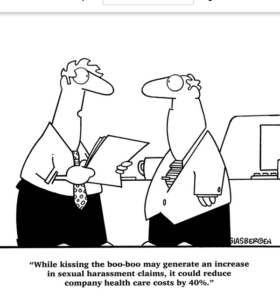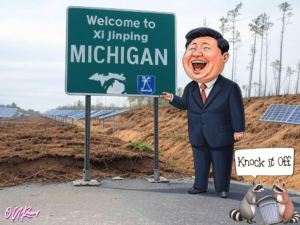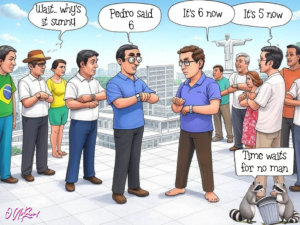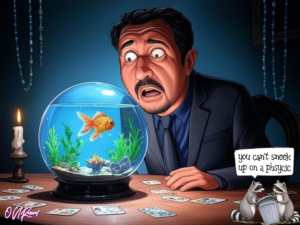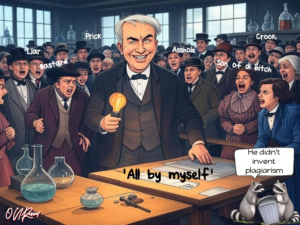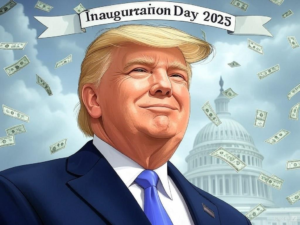Report on Brazil’s Daylight Saving Time, Climate Change, and Bolsonaro: An Exaggerated Sigh

Introduction: Ah, Brazil. Land of samba, caipirinhas, and now, apparently, the epicenter of some of the most hilariously misguided policy decisions when it comes to daylight saving time (DST) and climate change. If only we could save daylight like we save memes, we’d all be in a brighter, more sarcastic world.
The Claim: Bolsonaro’s Daylight Saving Time Fiasco
- The Policy Change: Back in 2019, Jair Bolsonaro, in a stroke of what must have been sheer genius or a profound misunderstanding of basic energy consumption patterns, decided to end Brazil’s daylight saving time. Why? Because, apparently, “nobody liked it.” Oh, and also, it was supposedly bad for the cows’ sleep schedules in the South. No, seriously, that was an argument.
- The Climate Change Angle: Now, fast forward to this delightful article from The Washington Post, which suggests there might be a link between this DST abolition and climate change. The theory goes that by not shifting time, we’re somehow contributing to global warming because… reasons? Maybe because we’re all using more lights in the evening now? Or perhaps because the cows are more stressed and therefore produce more methane?
- Public Reaction: The public’s response to this, at least in the social sphere, seems to oscillate between bemused confusion and outright mockery. Posts on X (formerly Twitter) are filled with Brazilians lamenting the loss of an extra hour of sunlight and sarcastically thanking Bolsonaro for ensuring they can now enjoy darkness earlier each day.
Evidence or Lack Thereof:
- Scientific Backing: Here’s where we dive into the scientific abyss. There’s actually very little direct evidence linking the cessation of DST in Brazil to any significant environmental impact. Sure, energy consumption patterns might shift, but claiming this directly exacerbates climate change? That’s like saying stopping your daily jog will cause the Earth to stop spinning.
- Theoretical Musings: Some theorists argue that the end of DST could lead to higher energy use for artificial lighting, thus increasing carbon emissions. But then again, there’s also the counterargument that people might just adjust their schedules, negating any significant increase. It’s all very academic, very theoretical, and very much open to interpretation.
Bolsonaro’s Role:
- Political Theater: Bolsonaro has always been a character in Brazil’s political theater, often playing the part of the anti-establishment figure. His decision to end DST could be seen as one of his many “I’m not like other politicians” moves. However, whether this was a genuine attempt to address public complaints or just another populist whim is up for debate.
- Environmental Policies: As for climate change, Bolsonaro’s environmental policies have been, let’s say, less than enthusiastic. From encouraging deforestation in the Amazon to dismissing climate science, his tenure has been more about economic development than ecological preservation. So, tying his DST decision to climate change feels like trying to connect the dots with an Etch A Sketch.
Conclusion:
In conclusion, while the abolition of daylight saving time in Brazil might have provided a new topic for late-night rants and social media memes, its direct impact on climate change is more of a stretch than a yoga session. The Washington Post’s article seems to be grasping at straws, possibly to highlight Bolsonaro’s broader environmental negligence.
If we’re going to talk about saving the planet, maybe we should focus on more significant issues like reducing deforestation or promoting renewable energy, rather than lamenting over an hour of daylight. But hey, in Brazil, even time management has become a political battleground.
Sarcasm Level: Off the charts.
Actual Impact on Climate Change: Minimal to none, but good for a chuckle or a heated debate over a caipirinha.





















